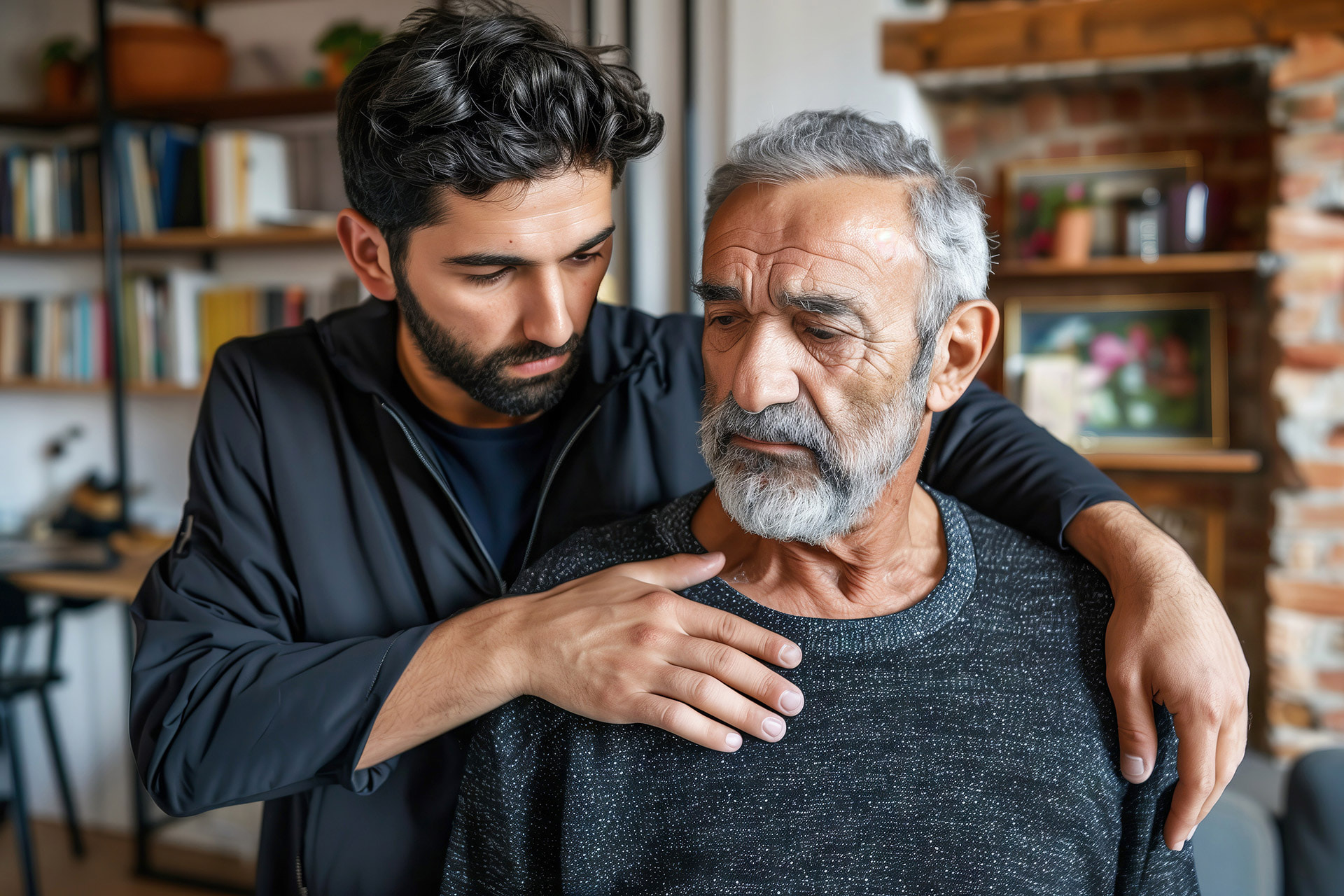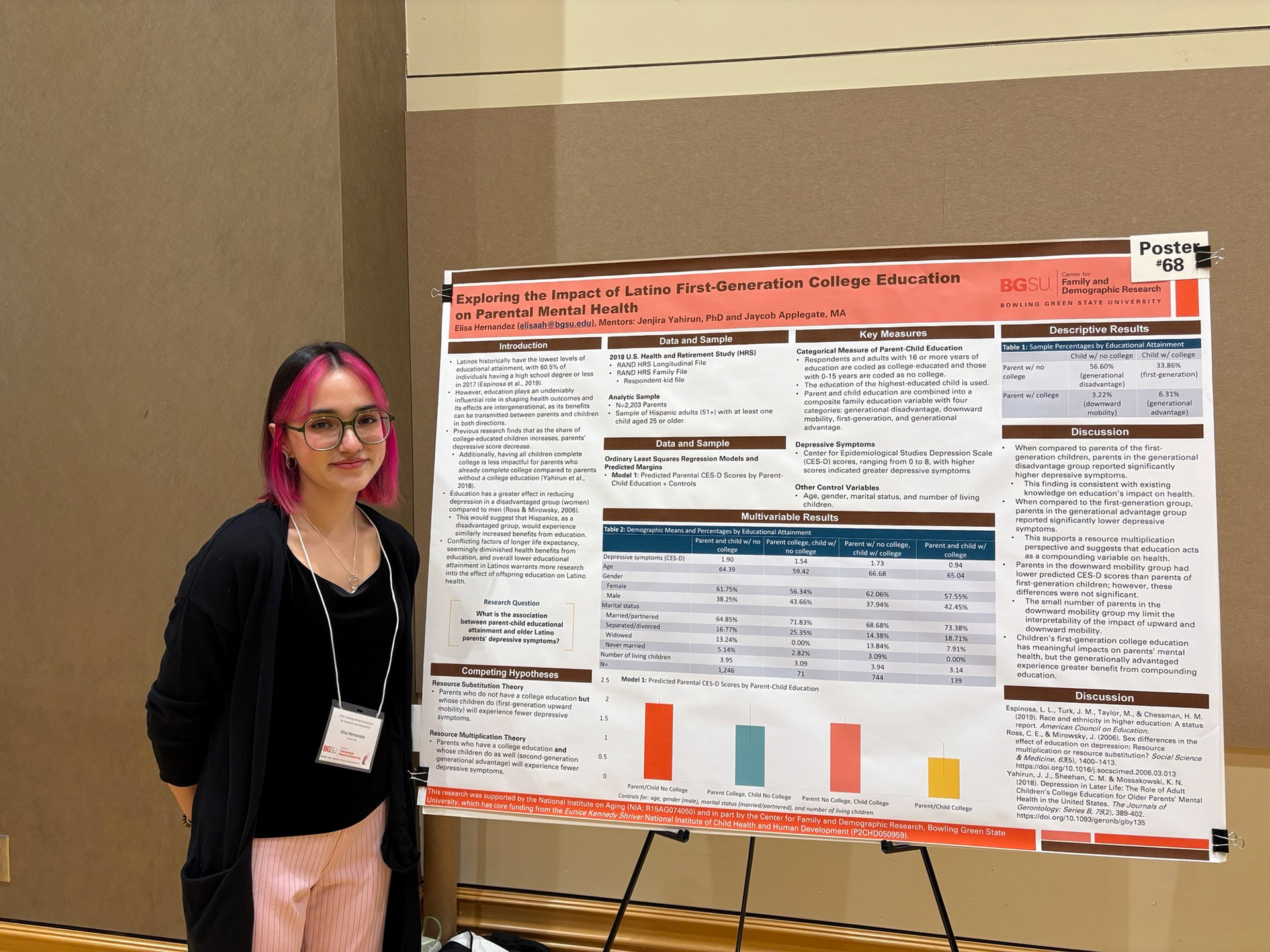
Undergraduate research at BGSU finds correlation between mental health and college education among Latino/a/x community
Estimated Reading Time:
Parents with children who received a college education experience significantly fewer depressive symptoms
By Branden Ferguson
After visiting Bowling Green State University and realizing the hands-on approach to education she could have, Elisa Hernandez began her pursuit of a degree in psychology. Combining her love for psychology with undergraduate research in sociology, Hernandez was able to conduct her own research project focusing on the Latino/a/x community.
"I am able to intertwine psychology and sociology to look at the effects first-generation Latino college students have on their parents' mental health," she said. "I'm looking at the social determinants of health, but also diving into the psychology behind it all."
Hernandez wasted no time, jumping head-first into psychology and sociology research, with guidance from faculty members in the University's renowned Center for Family and Demographic Research. While parental education is well documented to affect children's health and well-being in what is considered a "downstream effect," Hernandez was eager to explore the "upstream effects" of education. She sought to answer the question: Do parents benefit from their children receiving a college degree?
"As a first-generation student and Latina myself, learning about these upstream and downstream effects, I began to wonder whether it mattered if parents having a college education affected how much benefit they acquire from their children's education," Hernandez said. "I wanted to determine who experiences lower depressive symptoms: parents of first-generation college students or parents who have a college education, whose children also have a college education."
Her research was built on the recent findings of BGSU sociologist Dr. Jenjira Yahirun, who discovered a clear correlation between older adults' cognitive decline and their adult child's educational levels.
Using national data from the U.S. Health and Retirement Study, Hernandez created a family education variable with parental and child education levels. To measure mental health, she used the Center for Epidemiologic Studies Depression Scale (CES-D).

"I found college-educated parents with children who also received a college education experienced significantly fewer depressive symptoms compared to parents of first-generation Latino students," said Hernandez. "Parents with no college education whose children also had no college education had the highest CES-D scores."
Ranked as the No. 1 public university in Ohio for student experience, high-impact research and experiential learning are critical to student success, something Hernandez is thankful for.
"Being involved in undergraduate research has 100% made me a better student," she said. "I am able to use what I'm learning in class and apply it to my research. Practice makes perfect, and undergraduate research allows me to practice for my future career."
Planning to go to graduate school after finishing her bachelor's degree, Hernandez described undergraduate research as a "building block" for her career. With the support of BGSU professors, she found research to be more approachable instead of an "intimidating hurdle" she would have to address in grad school.
"As a student, I worked alongside experienced professors and learned how they approach research," Hernandez said. "That prepared me to do my projects with professors' guidance. It felt like an apprenticeship for a trade job. I took time to learn from a more experienced person before branching out and trying it myself."
Making the most of the resources available to her through BGSU, Hernandez chose to study in Spain as part of the education abroad program.
"I wanted to surround myself with Spanish-speaking people and finish my Spanish minor," Hernandez said. "Knowing a second language will allow me to talk and work with ethnic and racial minorities with mental health problems. Ultimately, my dream job would allow me to serve as a clinical psychologist in crisis intervention, working with adolescents and young adults in underserved populations."
Related Stories
Media Contact | Michael Bratton | mbratto@bgsu.edu | 419-372-6349
Updated: 05/13/2025 12:28PM




